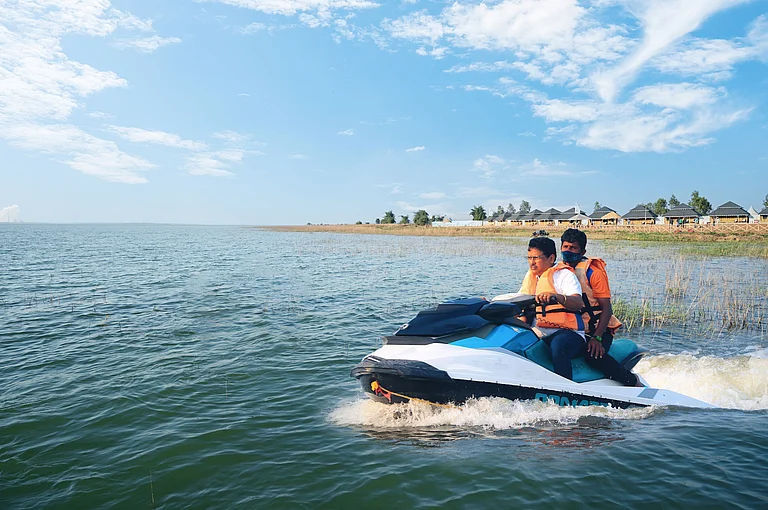Hawaii lawmakers are on the verge of passing a $25 climate tax aimed at tourists visiting the Aloha State, intending to address what they argue is a threat to the region's natural resources.
Last year, the state welcomed 9.5 million visitors as it continues to recover from the destructive wildfires in Lahaina, Maui, which claimed the lives of at least 100 individuals and resulted in approximately $6 billion in damages.
State officials stated that the proposed tax would fund efforts to safeguard beaches and mitigate the risk of wildfires.
Hawaii Governor Josh Green, a Democrat, conveyed to The Wall Street Journal, “It’s a very small price to pay to preserve paradise.”
The proposed tax from the nation's 50th state aligns with similar measures taken by other tourist destinations worldwide, such as Greece, Venice in Italy, the Galapagos Islands of Ecuador, Palau in the Pacific, and New Zealand. These locations have implemented fees for tourists ranging from $1 to $100.
In 2022, Governor Green campaigned on a platform that advocated for a $50 fee for all tourists entering the state. However, the proposal did not secure enough votes in the state legislature to pass.
“All I want to do, honestly, is to make travelers accountable and have the capacity to help pay for the impact that they have,” Green told AP last year.
“We get between nine and 10 million visitors a year, (but) we only have 1.4 million people living here. Those 10 million travelers should be helping us sustain our environment.”
Speaking to The Journal, Green stated his expectation that a $25 fee would generate $68 million annually for the state. This revenue would be allocated towards establishing a state fire marshal and aiding in disaster prevention efforts.
However, certain legislators argue that such a tax might infringe upon constitutional protections for free travel in the US. As an alternative, they have advocated for year-long licenses or passes for accessing popular parks and trails frequented by hikers. Either approach would mark a pioneering initiative among US states.
Hawaii lawmakers are exploring additional options, such as increasing the state hotel tax, which currently ranks among the highest in the nation.
According to State Representative Sean Quinlan, a Democrat who chairs the House Tourism Committee, shifts in traveler behavior are driving Hawaii's initiatives. He highlighted a 30% decrease in golf rounds per visitor per day over the past decade, coupled with a 50% increase in hiking activities.
Additionally, people are increasingly drawn to previously overlooked and unexplored destinations that they are now seeing someone else post on social media. Quinlan noted that the state lacks the funds necessary to manage all these locations.
“It’s not like it was 20 years ago when you bring your family and you hit maybe one or two famous beaches and you go see Pearl Harbor. And that’s the extent of it,” Quinlan said.
“These days it’s like, ‘Well, you know, I saw this post on Instagram and there’s this beautiful rope swing, a coconut tree.'”






















